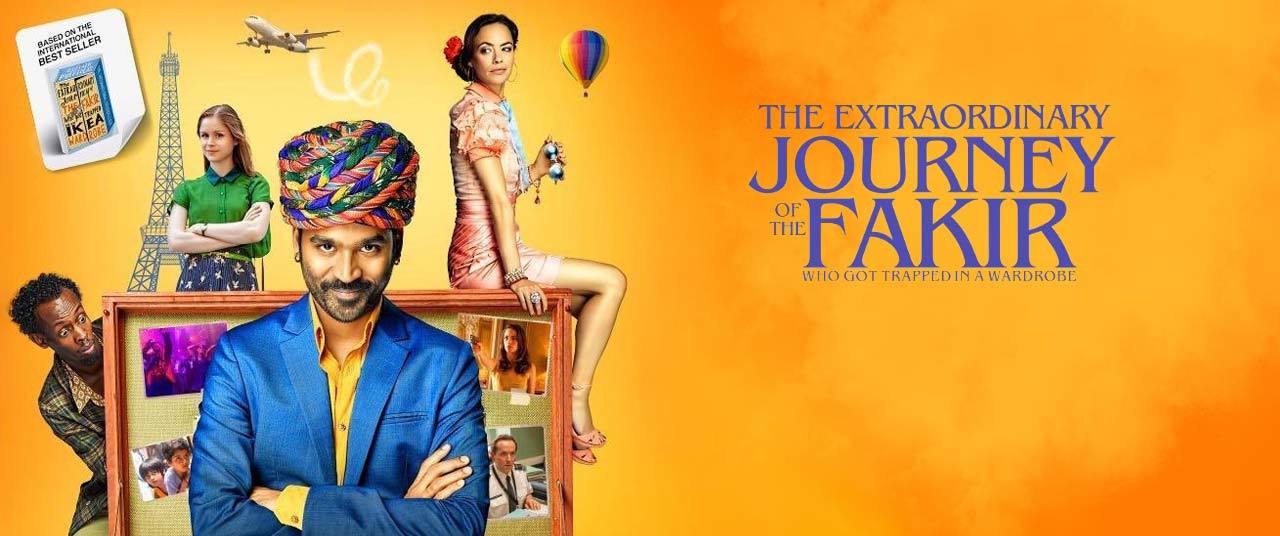
All men are born equal, but a microsecond after they are born chance takes over!
says the Narrator as a myriad of stills of cute little babies bombard the screen eliciting the odd Aww from some parts of the crowd. We are introduced to Ajatashatru Lavash Patel, who walks into the Police station to sit 3 expletive-spouting delinquents sentenced to juvie down, and proceeds to narrate a ‘tragedy’ to them. Early on in his life, Ajaa realizes 2 things. One, he was poor. Two, He didn’t want to be poor.
Ken Scott’s The Extraordinary Journey of the Fakir takes the viewer on a colourful journey across the world, showing the highs and lows of each location. Dhanush makes his strong presence felt as the lead character supported strongly by Erin Moriarty, Barkhad Abdi, and Bérénice Bejo rounding off the main cast. The story is fantastical, with it being quite a mouthful not unlike the name, but in no moment through the 90-odd minute runtime are you left hanging. The story progresses at a nimble pace aided by effortless acting by Dhanush. A lot of subtexts are touched upon as the protagonist makes his way from Indian to France, London, Spain, Italy and even Libya with the subtle narratives of fame, money, power, a perfect life, destiny, karma, and others teaching him and by extension the audience the value of what one leaves back while pursuing dreams.
It is by no thread a technical masterpiece but it is shot and directed beautifully making generous use of all the locations the story allows it to. There may have been a lot of story material lost while converting the book it is based on, into a script, and it shows, but that doesn’t take away the feel-good nature of the film and it’s ending. Bookended by a fantastic score and a Bollywood dance number for good measure, composed and sung by the amazing Amit Trivedi, is a pleasure throughout and one cannot help but wonder at how alien it sounds. A purely Indian soundtrack is so scarce today with all the electronically generated sounds and fusions that blare through the Dolby speakers in the theatre, even in Bollywood and regional films. You are still left humming the tune hours after coming out of the hall.
An Indian viewer, however, may not be all happy, with the first jarring aberration being the distinctly South Indian sounding Dhanush passed off as a Mumbai kid. The film has chosen the stereotypical trope of portraying India as a land of street-performers, mystics, and poverty although in this case, it had more to do with the story, than other narratives. The performances are strong, and it is meant to be a ‘magical’ film but that doesn’t excuse the do-aways done with the female lead’s story arc that is reduced to another fairly tale-esque narrative.
The thin threaded narrative of magic comes full circle towards the end of the film in a much more satisfying way that leaves you smiling at the notion of Karma, that is subtly scoffed at throughout. For all it’s faults, the film wraps up nicely, and although you aren’t left with a particularly memorable story, the feeling it ends with is a well rounded one with everyone leaving the theatres with large smiles writ.

Be the first to comment